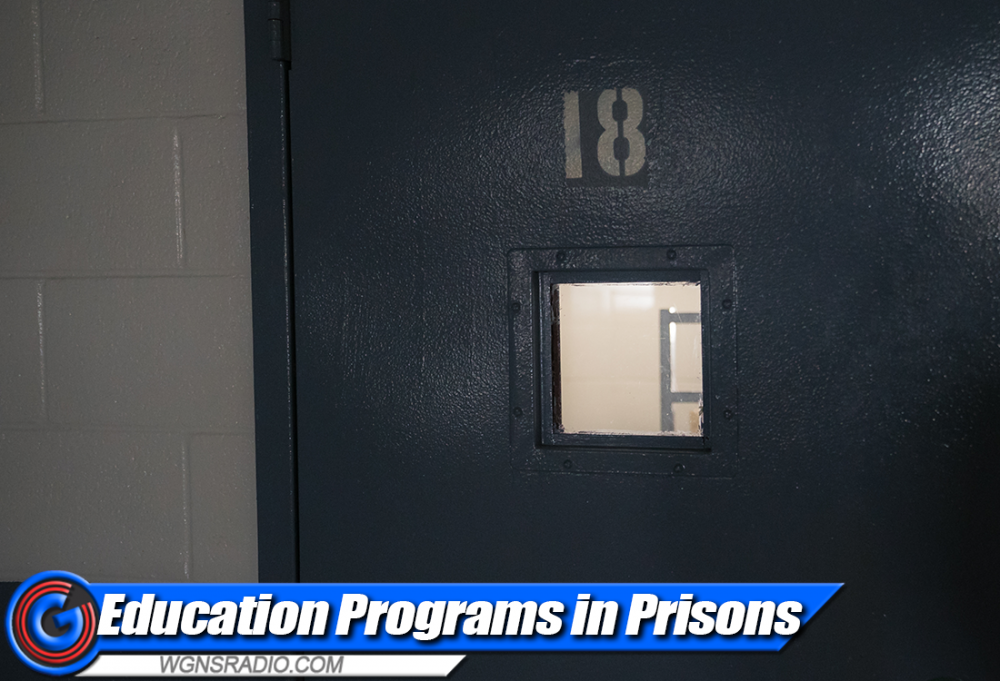The highest quality research on prison education and workforce programs shows a positive impact on recidivism rates, earnings and employment opportunities for participants. The Mackinac Center for Public Policy released a summary of this research — the largest meta-analysis on the topic to date. The complete analysis will be published in an academic journal later this year.
Middle Tennessee State University’s Steven Sprick Schuster and Ben Stickle authored the report, working with the Political Economy Research Institute at MTSU. They are both professors at the university — Sprick Schuster in economics and Stickle in criminal justice administration.
They found in their review of published research that participating in a prison education program:
- Decreases the likelihood of recidivism by 14.8%.
- Increases likelihood of employment by 6.9%.
- Increases quarterly wages for employed ex-offenders by $131.
“This study is the first to calculate the impact of different prison education programs using only high-quality studies. We methodically reviewed 750 research papers published between 1980 and 2022 related to programs in the U.S.,” says Stickle.
The United States has the world’s sixth highest prison population, with 5 in 1,000 people behind bars. The cost of incarcerating so many people is steep, with taxpayers spending an estimated $182 billion a year to house prisoners, pay police, and provide for courts, health care and additional expenses.
Given that many prisoners are reoffenders, some states have turned to education and workforce training in an effort to reduce recidivism and prison costs.
This meta-analysis compiled 148 results from 78 of the highest-quality research papers and studies. It used those estimates to evaluate the average effects prison educational programs have on prisoner recidivism, employment and wages. The findings are divided out by educational level, including adult basic education, high school and GED programs, vocational training, and college.
Sprick Schuster and Stickle also calculated the return on investment of these programs. They found that college education programs produce the best benefit for participants, while work training provides the best return on investment from a taxpayer’s perspective. The ROI for each program was positive and that does not include many indirect benefits of lowering recidivism rates, such as fewer victims of criminal behavior and other indirect costs of crime.
“Giving former offenders a better chance of success upon reentry into society should be a priority. Unfortunately, very few inmates have the opportunity to take advantage of these programs,” says Sprick Schuster.
Visit www.mackinac.org/s2023-01 to read the summary of the meta-analysis’ findings.
About the Report Authors
- Steven Sprick Schuster, Ph.D., is an assistant professor of economics at Middle Tennessee State University and member of the Political Economy Research Institute. His research interests include economic history and political economy. His historical research studies the role of U.S. government institutions (especially the Post Office) in the late 19th and early 20th century, while his political economy research focuses on how voters respond to campaign messaging, information networks, and election structures.
- Ben Stickle, Ph.D., is an associate professor of criminal justice administration and PERI-affiliated scholar at Middle Tennessee State University. His research interests include policing, property crime and emerging crimes, such as package theft and crime in the sharing economy. Stickle's theoretical focus is crime opportunity and rational choice, specializing in qualitative methods. He is the author of“Metal Scrappers and Thieves” (Springer, 2017), co-editor of “Policing Behavior, Hiring, and Crime Fighting: An International View” (Routledge, 2021), editor of “Field Studies in Environmental Criminology” (Routledge, 2022).
Based in Midland, Michigan, the Mackinac Center for Public Policy is a nonprofit research and educational institute that advances the principles of free markets and limited government. PERI Director Daniel J. Smith, Ph.D., serves on the Mackinac Center's Board of Scholars.
Additional WGNS News Headlines:
- 2021 Murder Case Heads to a Grand Jury
- GAS: The Price of Fuel This Week in Rutherford Co.
- Missing Murfreesboro Woman Safely Located
- Commentary by Commissioner Harris: Wokeism
- Apartment Rent in Rutherford County






